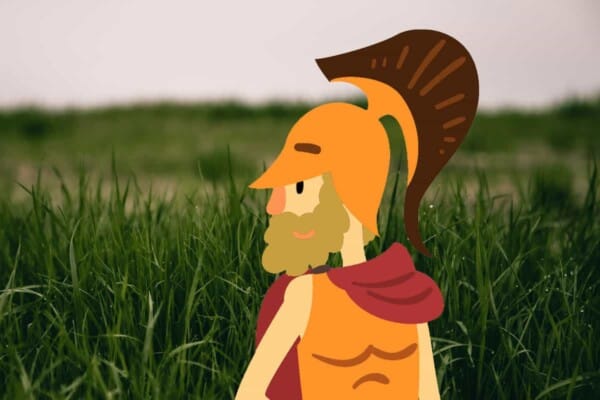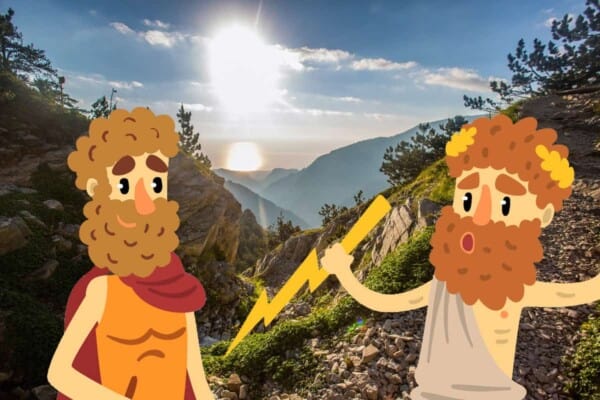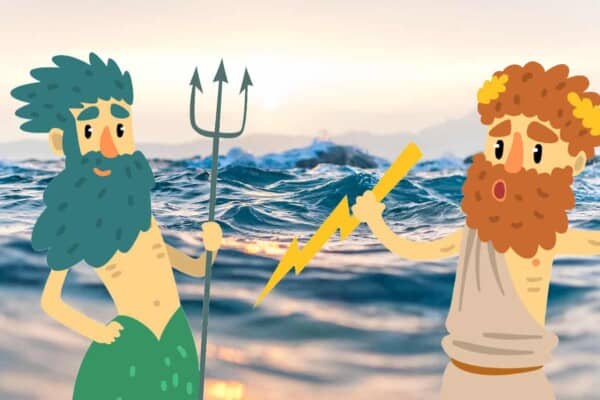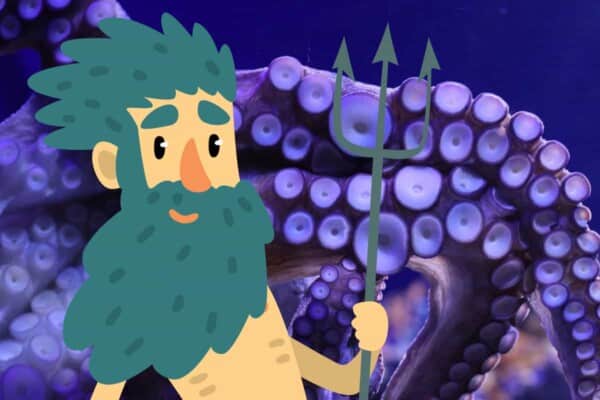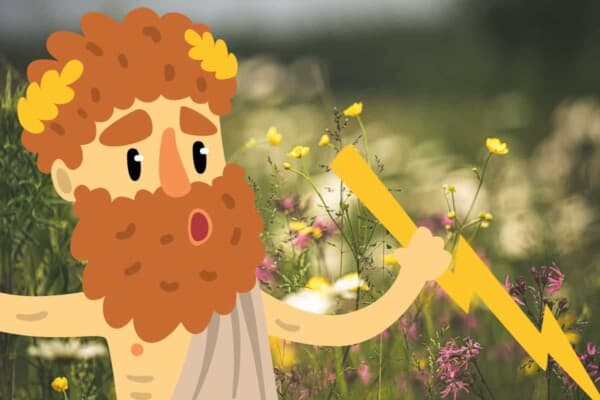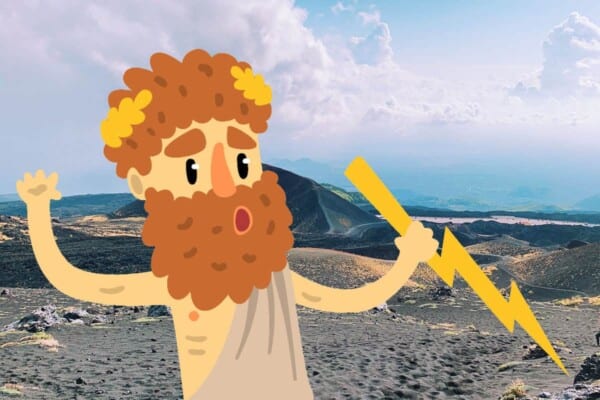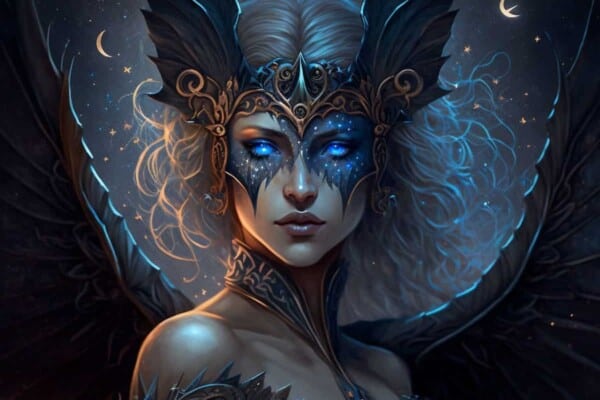Aphrodite (and her Roman counterpart Venus) is perhaps the most well-known of the Greek goddesses just by name alone, but why is she important?
As the goddess of love, beauty, sex, and procreation, she embodied youthful womanhood. Her name gives us aphrodisiac and, by way of her child, hermaphroditism. Venus is the “female” planet as opposed to masculine Mars (Ares). In myth, these two were lovers. Aphrodite’s jealousy and vanity were the impetus behind many legendary events, and her beauty the motivation for more. She was intelligent and shrewd to the point of dangerousness, making her a favorite amongst women.
Was Aphrodite Good or Bad?
It’s hard to judge goddesses on human morality, especially humans’ morality thousands of years later. All of the Olympic Pantheon (and their families) carried fatal flaws, and Aphrodite was no exception.
One of Aphrodite’s powers was the ability to make anyone fall in love with anyone else, with very few divine exceptions and even fewer amongst humanity. She used this to damage and punish (such as causing the affair which resulted in the monstrous Minotaur) and aid (such as causing Medea to fall in love with Jason).
She was known to be jealous and vain and often competed with other goddesses to be named the most beautiful. Her victory in a judgment between herself, Hera, and Athena over the prize of a golden apple was the primary event that led to the Trojan War!
Even more than most other gods, Aphrodite was prone to extreme favouritism or extreme vengeance. She freely used love and sex as both weapons and rewards to humans and to gods. She also took many lovers, most significant amongst whom was Ares, and had many children – though none with her husband, Hephaestus. Theirs was a marriage arranged by Zeus to calm her that ended up having the opposite effect.
Who were Aphrodite’s lovers and children?
As the goddess of love and sex, it’s perhaps not surprising that she had a fair amount of both of these! While not nearly as prolific as Zeus, Aphrodite took several influential consorts and had with them a number of significant children.
- Ares, the God of War, was a fellow Olympian. Depending on the telling, he is either a brother or cousin. The two loved each other passionately and ended up publicly shamed for their affair. Their children included:
- Phobos and Deimos, the personifications of fear and terror, who served as Ares’s assistants.
- Harmonia, the goddess of concord and harmony. She also shares her name with a nymph and lover of Ares.
- The Erotes, four winged gods, closely associated with love, sex, and romance. Their names were:
- Eros, the personification of desire and the consort of Psyche.
- Anteros, the personification of requited love, who was born as Eros’s playmate.
- Himeros, the personification of unrequited love and an athlete.
- Pothos, the representative of yearning and longing.
- Dionysus, the God of Wine and Revelry, and another fellow Olympian. He was also a fertility god, so their union wasn’t very surprising! Their children were:
- Hymenaeus, the god of marriage from where we get the word “hymen.” He is sometimes a son of Apollo with another mother instead, and he is an additional Erote.
- Iaccus, a minor deity. His mother is sometimes instead Persephone or Demeter and a different father.
- Priapus, a minor fertility god who was cursed in Aphrodite’s womb by Hera to have problems with his erections and appearance. He was raised on earth by shepherds. Sometimes his father was Hermes instead.
- Hermes, the messenger god, who was a close friend of Aphrodite on Olympus. They had one or two children.
- Hermaphroditos, from where we take the word hermaphrodite. Initially, a man, he and the nymph Semele were bound together forever, becoming both man and woman.
- Poseidon, God of the Sea and one of the three ‘king’ Olympians. Their child is contested, but is usually:
- Rhodos, the goddess of the island, Rhodes, who became the wife of Helios.
- Adonis, an exceptionally handsome mortal man who is generally accepted as Aphrodite’s only real love. He was killed by a boar. Their children were:
- Beroe, a mortal nymph who courted Dionysus before marrying Poseidon.
- Golgos, who founded the Cyprian Golgi
- Butes, an Argonaut and companion of Jason who was rescued and used by Aphrodite to make Adonis jealous. Their children were:
- Eryx, a king who died in a boxing match with Herakles
- Several unnamed daughters
- Phaethon, son of Eos.
- Astonyous, their son.
She is also the mother of Peitho, the seduction goddess, by an unknown father. Aphrodite and her husband, Hephaestus, never had children.
What Was the Role of Ares In Some of the Myths?
As already mentioned, Aphrodite played a crucial role in many essential myths. Usually, her role was based on her jealousy or anger or on some love affair that she was either involved in directly or set in motion! Some of the most important were:
- Her own birth – Aphrodite is sometimes a daughter of Zeus. Still, more often, she was produced by the sea foam when the genitals of Uranus, chopped off by Kronos, fertilized the sea.
- The Trojan War – She won the golden apple from Paris, declaring her the fairest of the gods. As a reward, she gave him Helen of Troy – an act which would directly lead to the infamous Trojan War.
- The myth of Adonis – Aphrodite cursed Adonis’s mother, Myrrha, to become a tree for claiming to be more beautiful than the goddess. Myrrha birthed Adonis but remained a tree. Aphrodite found him and took him to the underworld to be nursed by Persephone. Later, the two goddesses competed over who loved him the most. Zeus decreed Adonis should spend a third of the year with each and the other third with whoever he preferred. Adonis chose Aphrodite, and they loved one another deeply. He was gored by a bore while hunting and died. Sometimes the boar was sent by Artemis, other times by a jealous Ares. When she found him dying, Aphrodite held Adonis in her arms, where he died. As she wept, anemones sprouted wherever his blood had spilled. She also pricked her finger, and the blood from it made white roses turn red.
Final Thoughts
Aphrodite is a particularly interesting goddess as she stands out significantly from the other female Olympians in a number of ways. Athena, Artemis, and Hestia all spurned men and swore virginity, while Hera was faithful to her (very unfaithful!) husband. Aphrodite, of course, had many lovers.
She was different from them as well in that Athena and Aphrodite both followed traditionally masculine pursuits (war, wisdom, and hunting), while Hestia and Hera both represented matronhood. Aphrodite, however, was young, free, and unapologetically feminine in the most traditional sense.
Her love affair with Ares is fascinating because it shows how rage and love are two sides of the same passionate coin. The two were considered outsiders amongst the Olympians, unrefined and slaves to their emotions – perhaps, then, it’s genuinely unsurprising that they ended up together.
Aphrodite’s strength comes from her inherent womanhood and sexuality. This is especially interesting in modern times, where female sexuality has been repressed and even punished. Though she was criticized by many of the other gods, her sexual freedom was never really the source. For modern scholars, this is especially interesting as it shows the ebbs and flow of attitudes in society.



